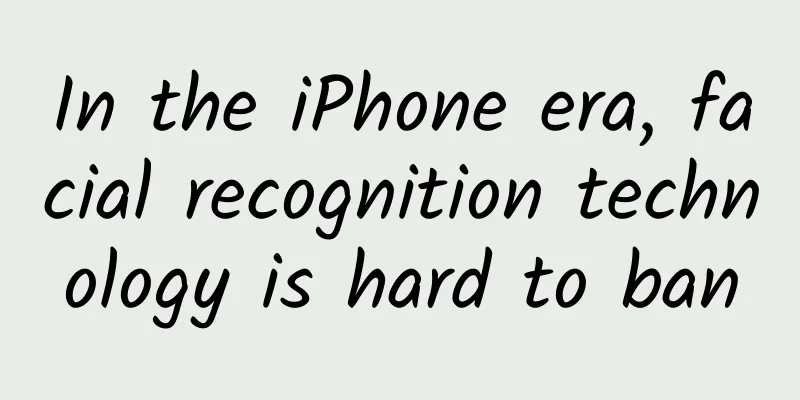In the iPhone era, facial recognition technology is hard to ban

|
San Francisco supervisors voted to amend the law to allow the use of iPhones with Face ID. The amendment allows city agencies to use products with facial recognition capabilities — including iPhones — if other features are deemed essential and there are no viable alternatives.
It’s worth noting that the ban on facial recognition still applies. Municipal employees are not allowed to use Face ID and must enter a password. That may upset some privacy advocates, but Matt Cagle, an attorney with the American Civil Liberties Union, said it was important that the ban on using facial recognition still applied. He said:
Facial recognition is difficult to ban In May, after San Francisco issued a facial recognition technology ban to municipal departments, the city's relevant departments soon discovered that a large amount of facial recognition technology was still in use in San Francisco. In addition, Lee Hepner, an assistant to Supervisor Aaron Peskin, a member of the local Board of Supervisors who took the lead in implementing the ban, said that even if the Face ID unlocking function is turned off, iPhones with this function are currently illegal. Around the same time, local police rushed to shut down their facial recognition systems and stopped searching for facial photos that had not been seen by the public or the local board of supervisors. Todd Pastorini, vice president of DataWorks Plus, a private law enforcement software company in South Carolina, said San Francisco police had called to disable the facial recognition software that San Francisco had obtained from the company. According to Leifeng.com (official account: Leifeng.com), New York and Los Angeles police use the same DataWorks software to search facial photo databases using photos collected from surveillance videos and other sources. The incidents show how thorny it is to regulate facial recognition — which a handful of cities have already begun to implement and is being considered in Washington — given its many uses and its ubiquity in consumer devices and surveillance systems. The technology has been criticized for being inaccurate, especially for people of color, but it is undeniably cheap to use and is becoming standard for police. San Francisco's ban was followed by similar regulations in nearby Oakland and Somerville, Massachusetts. As those cities enacted their bans, other cities across the U.S. began to use the technology more cautiously and avoid iPhones. On December 12, local time, WBUR News reported that due to concerns about Facebook's facial recognition and tagging functions, Brookline, Massachusetts passed a ban on facial recognition systems on municipal officials' personal devices. The city of Alameda in the San Francisco Bay area is considering following San Francisco's example and passing a similar ban. As Matt Cagle of the ACLU puts it:
In late January, when the surveillance bill and facial recognition ban were proposed, San Francisco police told Ars Technica that the department had stopped using facial recognition since 2017. The department did not publicly mention that it had signed a contract with DataWorks that year to use the company's facial photo database and facial recognition software, as well as a facial recognition server, until the summer of 2020, nor did it disclose that they were planning to upgrade the system. Wired magazine learned details of the contract and the 2019 test through a public records request. Documents obtained by Wired include an internal police department email sent the day the San Francisco ban was passed that mentioned testing of a new facial recognition "engine." Asked about the testing, spokesman Michael Andraychak acknowledged that the department had begun a 90-day trial of a new facial recognition engine in January, but he said it was shut down after the trial ended. He said the facial recognition servers connected to DataWorks were taken down after the law banning facial recognition took effect in July. Until now, the San Francisco Police Department seemed to have been able to use facial recognition relatively easily without the public’s knowledge, which was a bit of a surprise to Brian Hofer, a lawyer and privacy activist who helped draft the San Francisco ban and other similar ordinances in nearby Berkeley and Oakland. He said the fact that departments can access information without the public’s knowledge shows the need to limit access to surveillance technology is one of the reasons we’re pushing these ordinances everywhere. |
>>: Who will protect the security of facial recognition?
Recommend
4 bad habits in the kitchen may cause family members to suffer from cancer!
Planning丨Yinuo Editor: Yinuo Visual丨Zhang Shan Re...
The more you smoke, the more addicted you become. Is this a trend among primary and secondary school students? Urgent reminder!
Recently, a product called "sniffing energy ...
How much does it cost to develop a Dalian food mini program? What is the quote for developing Dalian Food Mini Program?
The main factors affecting the price of mini prog...
CometLabs: Global Intelligent Machine Industry Map
This industry map comes from Comet Labs' San ...
Ibuprofen "has different effects depending on posture"? The truth is...
Ibuprofen became popular, and the medicine box be...
Three Contradictions About Mini Programs
On January 9, 2017, WeChat Mini Programs were off...
Working on big data every day, where do you spend your time?
After working in big data for so many years, have...
Mini Program Log
In order to help Dongguan mini program developers...
We may see more "Barbie Green" in the future
Recently, the movie "Barbie" has set of...
APP user growth: How to use data analysis to improve user growth?
How can we make our APP stand out among a large n...
Wikimedia Foundation: AI crawlers cause Wikimedia Commons bandwidth demand to surge 50%
The Wikimedia Foundation, the management organiza...
This penguin has a unique way of molting, and they've been having some trouble lately...
Produced by: Science Popularization China Author:...
Power battery recycling may become a new trend. What business opportunities can retired batteries bring?
The explosive growth of new energy vehicles and p...
Huawei AX3 Pro router review: The most cost-effective flagship among affordable WiFi 6 routers
Whenever a new standard appears in the market, th...









